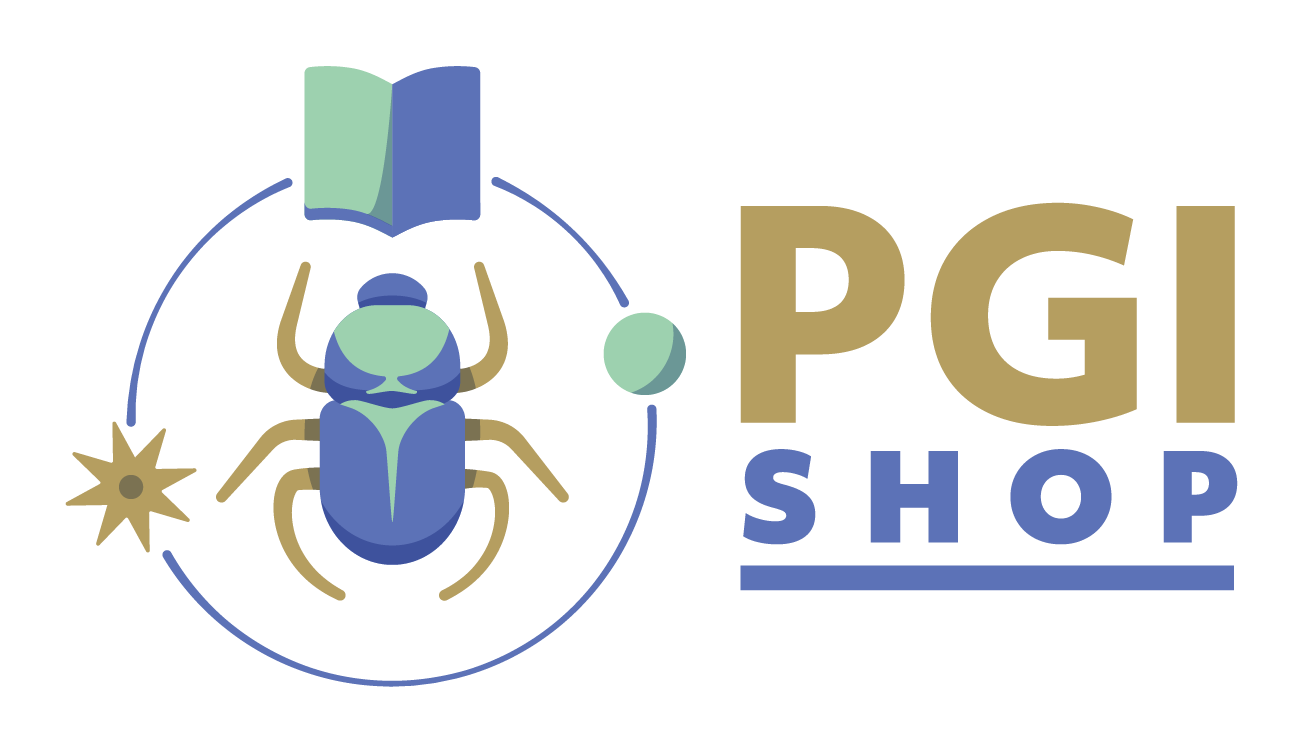Papyrus Bookmark - Sunbarque painted
Sunbarque painted painted bookmark 5 cm x 19 cm in protective cover and decorative ribbon
PGI bookmark
made of hand laid papyrus, manufactured in Egypt
silkscreen motif, cut edge
Sun barque motif
The barque was an important means of transport in Ancient Egypt and also had a representative and cultural significance. After the introduction of the Re-cult in the 5th dynasty, the sun god, according to Egyptian belief, drove a sun barque (Manedjet) across the arc of the sky during the day and crossed the waters of the underworld at night with a second barque (Mesektet ).
According to the pyramid texts, the deceased pharaoh travelled to the afterlife in a sun or death barque. So that the journey could be repeated over and over again, he was given such a barque to take with him into death. Various barques have been found, the most famous being that of the pharaoh Cheops (2604-2537 BC) near his pyramid.
Our papyrus offer
We offer bright, hand-laid natural papyrus from Egypt. From bookmark size, A4 and A3 to oversize of 92 x 192 cm, as well as various papyrus rolls, you are sure to find the right papyrus sheet. The design possibilities with papyrus are manifold. It can be inscribed with hieroglyphics or painted with various motifs. Tempera or watercolours, ink or felt-tip pens are suitable; it can even be printed with an inkjet printer.
Papyrus is a natural product
In the Nile Delta, papyrus leaves are still produced in the traditional way. Families in the countryside harvest the papyrus stems, which can be up to 6 metres high, and process the raw material into papyrus leaves with great skill. Carefully crafted papyri are produced in several steps, which always have an individual, handcrafted character.
The history
Papyrus has been produced and used as a writing material in Ancient Egypt since the 3rd millennium BC. It was always a highly valued product whose sole marketing rights lay with the Pharaoh. The German word "Papier" goes back to the Greek word "pápyros", which in turn is based on the ancient Egyptian word "pa-en-per-aa", which roughly means "the pharaoh's".
If papyrus is stored in a dry place, it has a very long life. Thus, papyrus scrolls or fragments that provided information about life in Ancient Egypt were and are still being found. The most famous papyrus scrolls are probably the Herculaneum Papyri, which were buried and preserved by the massive eruption of Vesuvius in 79 AD. Another 400,000 papyri from the ancient Egyptian Oxyrhynchus are still waiting to be deciphered and will once again bring much of interest to light. Julius Caesar is probably responsible for the greatest loss of knowledge in history. His soldiers set fire to the library of Alexandria, destroying thousands of important papyrus manuscripts.
Fair trade with Egypt
PGI buys Egyptian products directly from the producer. This allows us to bypass traders' stations and offer our customers favourable prices. But the Egyptian producers also benefit from this direct marketing, they achieve much higher prices for their products. We regularly visit our partners in Egypt and discuss the upcoming needs on site.

